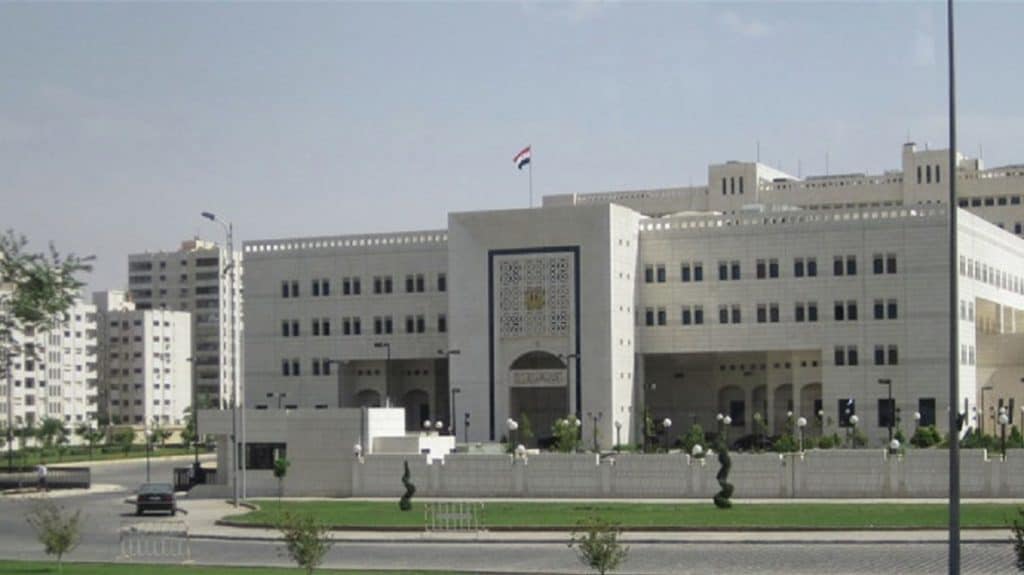One of the most likely scenarios for the end of the war in Syria is the triumph of President Bashar Al-Assad. However, the greatest challenge facing the Syrian government, in this new stage of the country’s history, will be the restoration of the state institutional control over the country, indispensable to maintain the government continuity, but also the support of Russia.
During the 6 years of war, a large part of the Syrian territory was taken from the control of the legitimate government and occupied by the “rebel” opposition groups and other terrorist militias, such as Al Qaeda and the Islamic State (ISIS). In the cities conquered by these groups massacres were committed towards the civilian population and “rebel” or “autonomous” governments ruled by the radical Sharia (Islamic Law) were imposed by force.
The presence and authority of the official government was razed in entire provinces and the State institutions were replaced by terror governments: police forces, firefighters, courts, security forces, state offices, and other institutions, were destroyed, eradicated and replaced by the Islamic Law system. The schools and hospitals in these regions were transformed into true military operation centers where the terrorist attacks were coordinated. The terrorists groups recruited and indoctrinated the children of these regions to turn them into active soldiers in their ranks. Each school and hospital became a training center, and in each mosque the message of radical Islamic fundamentalism was preached, so there may be now a sector of the population sympathetic to these ideas. Thousands of children and youth were indoctrinated for years, and they could represent a potential danger to the present and future stability of the country.
In the absence of a State able to guarantees public order, new sources of conflict could trigger, with terrorist attacks in every corner of the country, which will directly challenges the authority of the State and the permanence of the Bashar Al-Assad government in power. Meanwhile, the recently legalized opposition could gain followers, if the people perceive the government as weak and incapable.
Currently, there are three major threats to the stability of the Assad regime: the lack of effective control over the entire territory, the terrorist threat, and the existence of a new legalized opposition.
As for the first threat, it should be remembered that although the government recovered the territories conquered by the militias, there are still many institutions that are not functioning, such as ministries, governorship, mayors, police, firefighters, medical services and other basic services. This lack of effective control could unleash popular revolts or germinate a new wave of riots.
The rule of law is lost by the simple fact that the provinces are not controlled by authorities elected by the people. So the Syrian State must recover the management of a political-administrative control over all agencies and ensure that they are at the service of the need of the people and common good. To re-establish an effective rule of law, it is necessary:
-That the law will be the main instrument of government
-That the law be able to guide the human behavior
-That the power will interpret and apply the law congruently and with a minimum of distortion.
The second threat is terrorism. The existence of an Arab country tolerant, and respectful of freedom of religion and gender, such as Syria, could represent a threat of “contagion” to the societies of a number of countries of the region, whose governments prefer radical Islam. Therefore Syria may become a the main target for external radical terrorist Islamic groups, without counting the terrorist internal menace, as a result of the small sources of insurgency that remain in the provinces of Aleppo, Ar-Raqqa, Deir Ez-Zor and Hasaka.
The third threat to the stability of the government of the President Bashar Al-Assad is the existence of an opposition that had to be legalized as part of the political agreements to end the war. At the moment it does not have an important popular support. But in the future the legalized opposition forces could become a strong political movement.
So, the Syrian government may implement vital strategies of political and social control, able to assure the continuation of the Assad regime. Therefore, the question is raised if democracy in Syria will remain only an illusion or empty shell.







